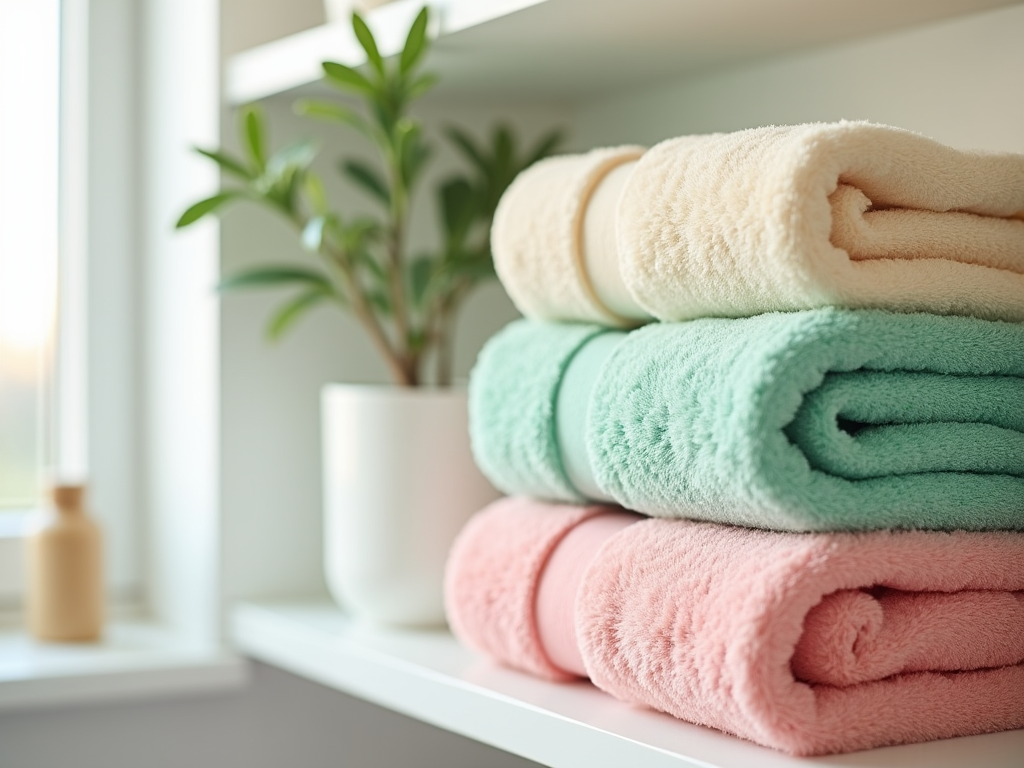You’ve just stepped out of the shower, ready to embrace the freshness of a clean towel, only to be greeted by unpleasant odors. Smelly towels can be a common annoyance that many encounter, often leading one to question their laundry habits. It’s intriguing to note that while towels serve as essential household items for comfort and hygiene, improperly maintained towels can become breeding grounds for bacteria and mold. Understanding how to effectively prevent towel odors not only enhances your daily experience but also prolongs the life of these textiles. In this article, we’ll explore practical and impactful methods for keeping your towels smelling fresh. Dive in to discover simple changes that can make a world of difference in your laundry routine.
Understanding the Causes of Smelly Towels

Before diving into solutions, it’s crucial to grasp why towels develop that unpleasant smell. Towels tend to accumulate moisture, which creates an ideal environment for bacteria and mildew to thrive. Additionally, residual detergent, water hardness, and even the way towels are dried can exacerbate the problem. Each of these factors contributes to the odors that can linger even after washing, making it essential to approach this issue holistically. Simple awareness can shape how we care for our towels, allowing us to take steps towards prevention. Next, let’s explore actionable techniques you can adopt to keep your towels smelling fresh and clean.
Wash Towels Frequently

One of the most straightforward ways to keep towels smelling fresh is to make a habit of washing them regularly. Most experts recommend washing towels every three to four uses, especially after they’ve been exposed to moisture. Failing to do so can lead to the build-up of bacteria and odors that even the best detergents struggle to eliminate. When you wash your towels, consider the temperature of the water. Hot water can effectively kill bacteria and remove soap residues, but it’s vital to adhere to the care instructions for each towel type to avoid damage.
- Identify Ideal Washing Frequency: Regular washing is essential to prevent odor build-up.
- Use Hot Water: Hot settings help kill bacteria and lift stains.
- Dry Towels Promptly: Don’t leave wet towels in the washer; transfer them immediately to the dryer.
Dry Towels Properly
Moisture is one of the leading causes of smelly towels. Therefore, ensuring that towels are completely dry after washing is vital in maintaining a fresh smell. If you use a dryer, select a setting that effectively dries the towels without over-drying, which can damage their texture and absorbency. Alternatively, consider air drying them in a well-ventilated area. Sunlight not only aids in drying but also acts as a natural disinfectant, helping to eliminate bacteria and odors. The key is to establish consistent drying processes to keep towels fluffy and fresh.
| Drying Method | Advantages |
|---|---|
| Dryer | Quick drying time, convenient and consistent. |
| Air Drying | Natural, energy-saving, and helps reduce odors. |
Choose the Right Detergent
The effectiveness of your towel cleaning also hinges on the detergent you choose. Selecting a high-quality detergent designed to combat odors can dramatically improve the freshness of your laundry. Look for products that are marketed as “odor eliminators” or “enzyme-based” for optimal results. However, it’s equally important to avoid overusing fabric softeners, as they can leave residues that trap smells. Instead, use fabric softeners sparingly or consider alternative methods for softening your towels without soap interference.
- Enzyme-Based Detergents: These can penetrate fabric and neutralize odors more effectively.
- Minimal Fabric Softener: Use sparingly, as it may trap smells after subsequent washes.
- Care Instructions: Always follow the manufacturer’s guidelines for best practices.
Implement Vinegar and Baking Soda
Incorporating natural cleaners like vinegar and baking soda can further aid in eliminating towel odors. One effective method is adding a cup of white vinegar during the wash cycle to neutralize odors and break down soap residue. Vinegar acts as a natural fabric softener and helps restore the towel’s absorbency. Additionally, including half a cup of baking soda can help absorb stubborn scents. These natural elements are not only effective but also cost-efficient and safe for the environment.
Store Towels Correctly
The way you store your towels can also significantly affect their freshness over time. It’s essential to ensure that towels are completely dry before folding and putting them away, as any lingering moisture can lead to unpleasant smells. Moreover, the storage environment matters as well. Always choose a dry, well-ventilated space for your towels. Avoid storing them in damp bathrooms or sealed containers, as this can create a musty atmosphere. The optimal storage conditions contribute to maintaining fresh-smelling towels long after they leave the laundry room.
Rotate Towels Regularly
Implementing a rotation system for your towels can also promote freshness. By using different towels each time, you allow others the opportunity to breathe and air out. This simple change in behavior prevents any excessive buildup of odors that can occur when the same towels are used repeatedly. Additionally, consider planning a cleaning schedule that syncs with your regular laundry days. By ensuring that all towels receive equal attention, you can avoid any potential odors associated with infrequent washing.
Conclusion
Preventing smelly towels is a manageable task with the right strategies in place. Through a combination of regular washing, proper drying, and effective storage, you can enjoy fresh and fragrant towels every time. By being mindful of the products you use and employing natural alternatives, you can safeguard the cleanliness of your essential household items. With a routine that incorporates these practices, the experience of stepping out of the shower and reaching for a soft, fresh towel becomes a delightful one instead of a disappointment. It’s time to reclaim the comfort of a clean towel by adopting these simple yet effective techniques.
Frequently Asked Questions
- Why do my towels smell even after washing? Towels can retain odors if not washed frequently, if they are left damp for too long, or if excessive fabric softener is used.
- How often should I wash my towels? It is recommended to wash towels every three to four uses, or more often if they start to smell.
- Can I use bleach to eliminate smells from towels? While bleach can help with odors, it can also damage certain fabrics. It’s best to follow the manufacturer’s care instructions.
- Is it okay to wash towels with other laundry? You can wash towels with other items, but avoid mixing them with items that might leave lint or pill, like fleece or sweaters.
- How do I make my towels smell fresh? Washing towels with vinegar or baking soda, ensuring they are completely dry, and storing them in a ventilated area can help keep them smelling fresh.
